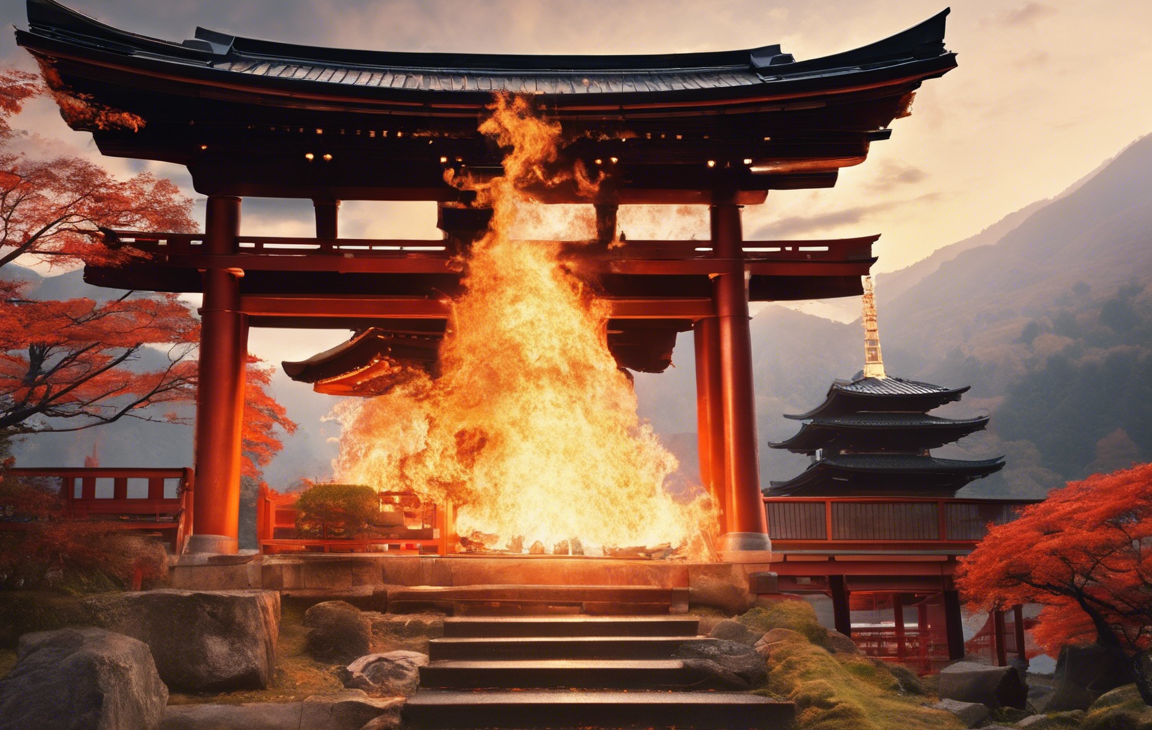Japanese Names with Fire Meaning
When it comes to naming a child, many parents look for names that carry a special meaning or significance. In Japanese culture, names have a deep connection to nature and elements, with fire being one of the most symbolic and powerful elements. Names with fire meaning can convey a sense of strength, passion, and vitality. In this article, we will explore some Japanese names with fire meaning and delve into their origins and significance.
H2: Overview of Fire in Japanese Culture
In Japanese culture, fire holds great significance and symbolism. It is associated with energy, strength, transformation, and purification. In Shinto beliefs, fire rituals are performed to ward off evil spirits and to bring blessings. Fire also plays a crucial role in traditional festivals and ceremonies, such as the Bonfire Festival (Daimonji) and the fire-walking ritual (Hiwatari).
H2: Japanese Names with Fire Meaning
-
Hinata (陽向) – This unisex name means “sunny place” or “towards the sun.” The character for “hi” (陽) can also mean “fire,” symbolizing warmth and brightness.
-
Reika (怜火) – Combining the characters for “wise” and “fire,” this name signifies “wise flame.” It conveys the idea of a brilliant and intelligent individual with a fiery spirit.
-
Kaen (火炎) – Literally translating to “flame,” this name is straightforward in its fire meaning. It represents passion, intensity, and the burning spirit within.
H3: Names Inspired by Fire Deities
-
Kagu-tsuchi (火産霊) – In Japanese mythology, Kagu-tsuchi is the god of fire and creation. Naming a child after this deity can evoke the qualities of creativity, destruction, and transformation.
-
Hinokagutsuchi (火之迦具土) – Another name for the fire deity Kagu-tsuchi, it emphasizes the connection to fire and earthly existence. It symbolizes the dual nature of fire as a force of creation and destruction.
H2: Naming Considerations
When choosing a name with fire meaning, it is essential to consider the cultural and linguistic implications. Make sure to research the characters and their nuances to ensure the name aligns with your intentions. Additionally, consider the phonetic sound and overall aesthetic of the name to ensure it resonates well.
H2: Frequently Asked Questions (FAQs)
Q: Are there gender-specific names with fire meaning in Japanese?
A: While some names are unisex, like Hinata, others may lean towards one gender, such as Kaen, which is more commonly associated with boys.
Q: How can I ensure the authenticity of a Japanese name with fire meaning?
A: Consulting with native Japanese speakers or experts in Japanese language and culture can help verify the accuracy and appropriateness of the name.
Q: Are there variations of names with fire meaning in different regions of Japan?
A: Yes, certain regions may have unique variations or pronunciations of names with fire meaning, reflecting local dialects and traditions.
Q: Can I combine a fire-related name with other elements or meanings in Japanese naming conventions?
A: Yes, mixing fire meaning with other symbolic elements can create a name rich in depth and significance, reflecting multiple aspects of the individual.
Q: Do names with fire meaning hold particular significance for certain professions or roles in Japanese society?
A: In some cases, names with fire meaning may resonate with individuals in creative or dynamic professions, emphasizing passion, drive, and energy.
In conclusion, Japanese names with fire meaning offer a unique and powerful way to imbue a name with symbolism and significance. Whether inspired by natural elements, mythical deities, or cultural traditions, these names can evoke a sense of vitality and strength. By exploring the nuances and origins of these names, parents can select a name that resonates deeply and conveys the desired traits for their child.






